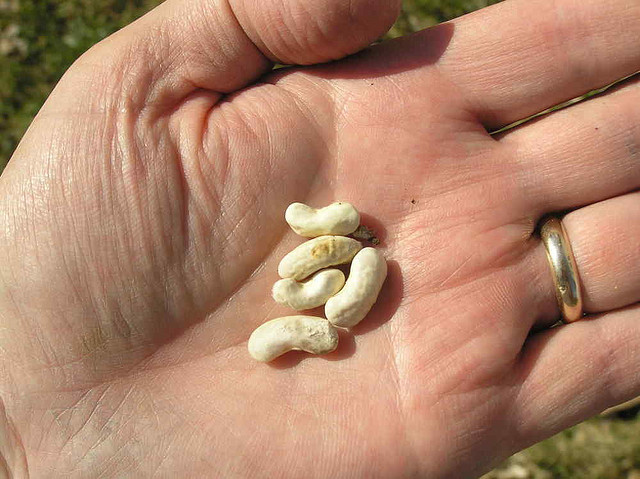One of the things I struggle to explain to people — particularly to other educators — is the utter centrality of knowledge in thinking.
We think about things, but we also think with things. Brilliance, wisdom, creativity — all these come from having learned about the external world. When we learn, we internalize — we take what's outside us, and re-create them inside us.
This is knowledge.
Knowledge is the re-creation of the external world inside our own cranial jelly.
This seems straightforward — and yet. The troublesome thing is that, for a hundred years or more, a crucial contingent of educational thinking has stood against teaching information.
As an unfortunate-but-typical example, take Maria Montessori. Montessori truly was an educational visionary; I'm still playing catch-up to her insights. And yet she displayed her own brand of anti-knowledge:
Education should no longer be mostly imparting knowledge, but must take a new path, seeking the release of human potentials.
Note that there's something true, beautiful, and good about this quote: education should be (must be!) about the development of human potential.
The error comes when developing potential is seen as opposing imparting knowledge.
Gaining knowledge is the quintessential way of developing potential — at least, it is for humans. (Bears, maybe, would develop potential in other ways — eating more salmon and blackberries.)
If we move away from imparting knowledge, we'll move away from a more human education.
And yet — when educators speak against "knowledge acquisition" as the goal for an education, they really are saying something true and beautiful and good.
What they're worried about is a method of schooling that sees children as nothing more than computer hard disks to be filled up with data. This truly is an anti-human education. But moving toward the opposite extreme is little better.
Our idea for a new type of schooling is about knowledge — deep knowledge. That's implicit in our trinity of goals: love, mastery, and wisdom.
As St. Augustine noted, "You cannot love what you do not know; you cannot know what you do not love." As cognitive psychologists have demonstrated, expertise is a type of knowledge. And as philosophic traditions the world over have long understood, living rightly derives from a knowledge of what the world is like — the word "wisdom" even comes from the Proto-Indo European root meaning "to know."
There's long been an educational battle between the pro-knowledge and knowledge-skeptical camps. It's not going away. We don't need to identify with the pro-knowledge camp: it's been misunderstood by the other side for too long.
Rather, what we need to do is open up a third way between them. We need to work out how to talk about the glories of knowledge acquisition done rightly, and the evils of knowledge acquisition done wrongly. We need to figure out which metaphors and verbiage and stories show people how wonderful knowledge can be, and how essential it is to developing love, mastery, and wisdom.
This is an important task for our movement: schooling won't be able to lead kids toward genius, toward wisdom, toward creativity until someone figures out how to make knowledge attractive again.
I'm working on this, but here's my conception for now: use an organic metaphor.
Instead of memorizing material, or acquiring information, we might talk about planting ideas.
Planting stories.
Planting knowledge.
This can take us into a nuanced understanding of the plusses and minuses of storing information internally, rather than externally. The splendid educational writer Annie Murphy Paul (whom everyone should be reading) writes about a recent division made by philosophers on the differences between "O-memory" (organic memory: your brain) and "E-memory" (electronic memory: your smart phone).
Her brief article brilliantly takes us beyond the well-worn education turf battle. She writes:
With our computers, we can search, store, and check. With our minds, we can browse, elaborate and reflect.
Each memory system, that is, has its advantages. We should use both:
If we make note of an upcoming appointment in our smartphone, its digital calendar won’t misremember the date or time, as our all-too-fallible brains are apt to do. On the other hand, if we enter the germ of an idea in our phone’s note-taking app, we won’t return after a busy weekend or a good night’s sleep to find that the idea has grown new connections and layers of meaning, as an idea planted in our organic memory is likely to do.
(Thanks for the metaphor, Annie!)
